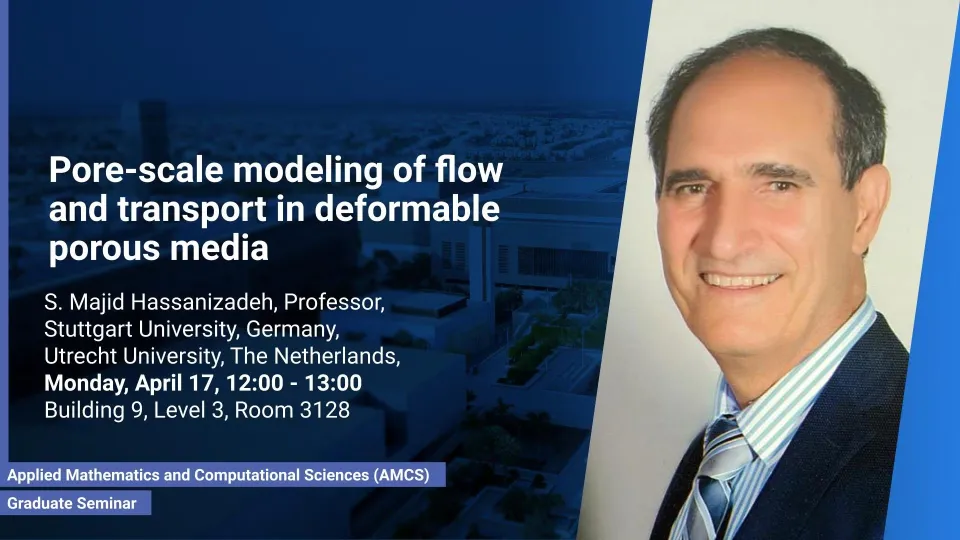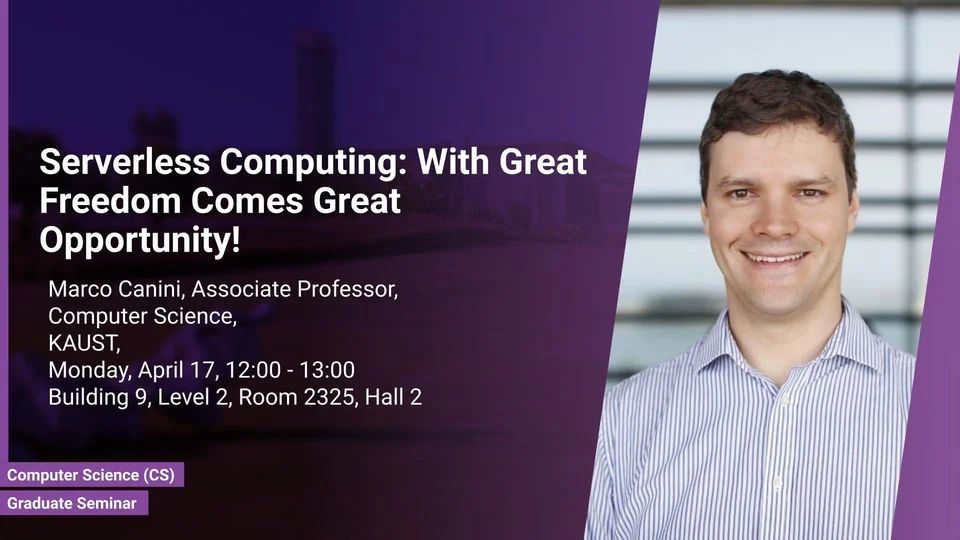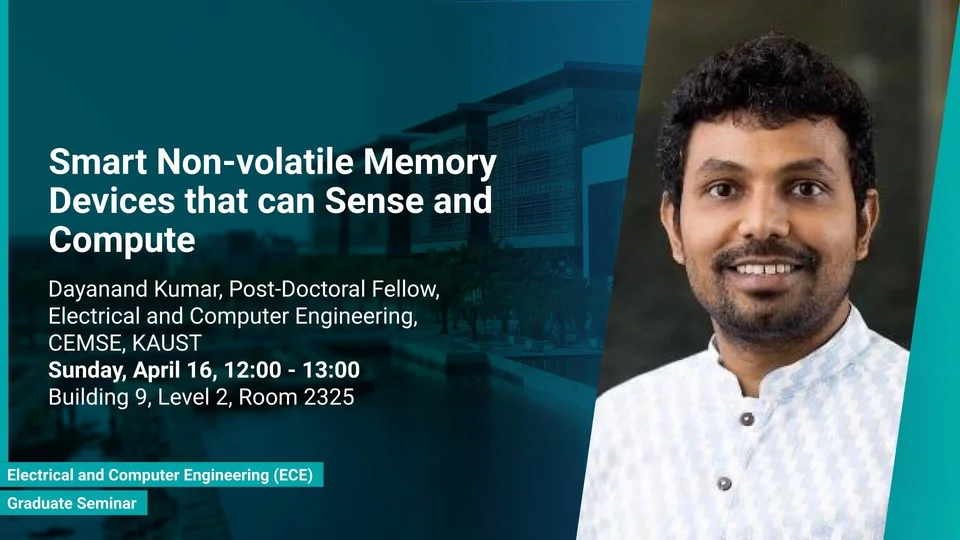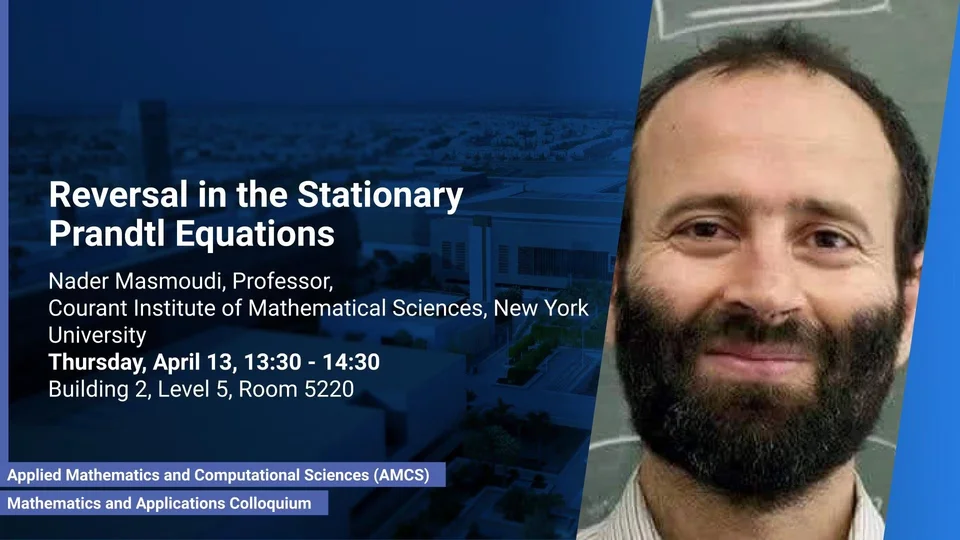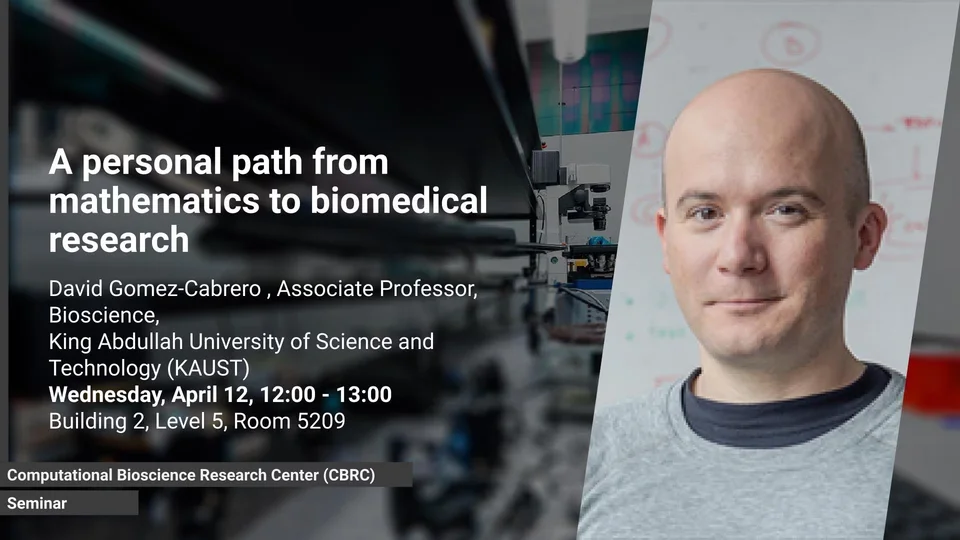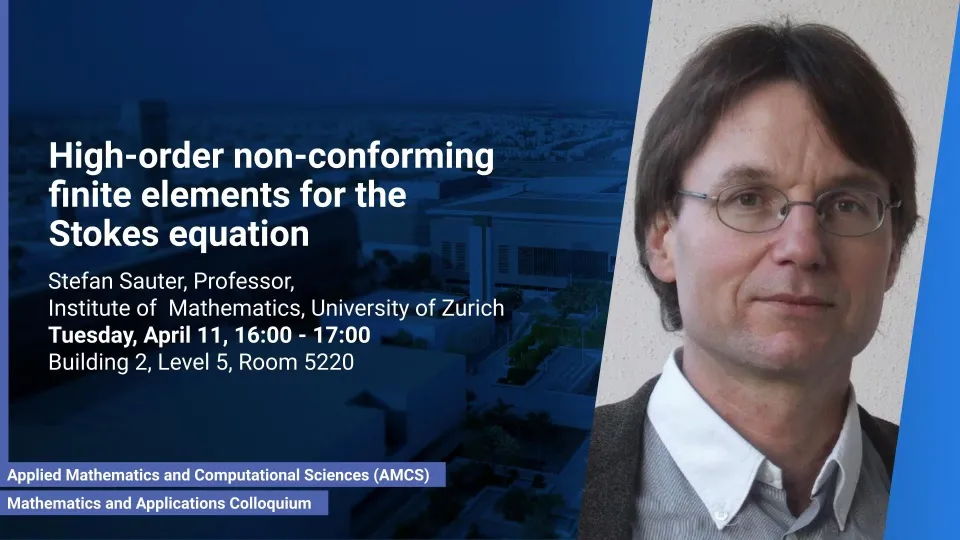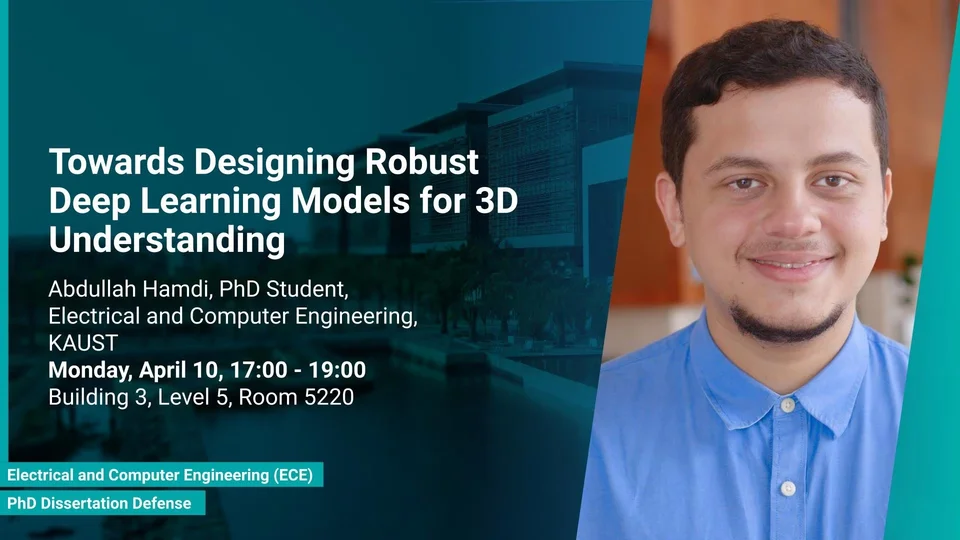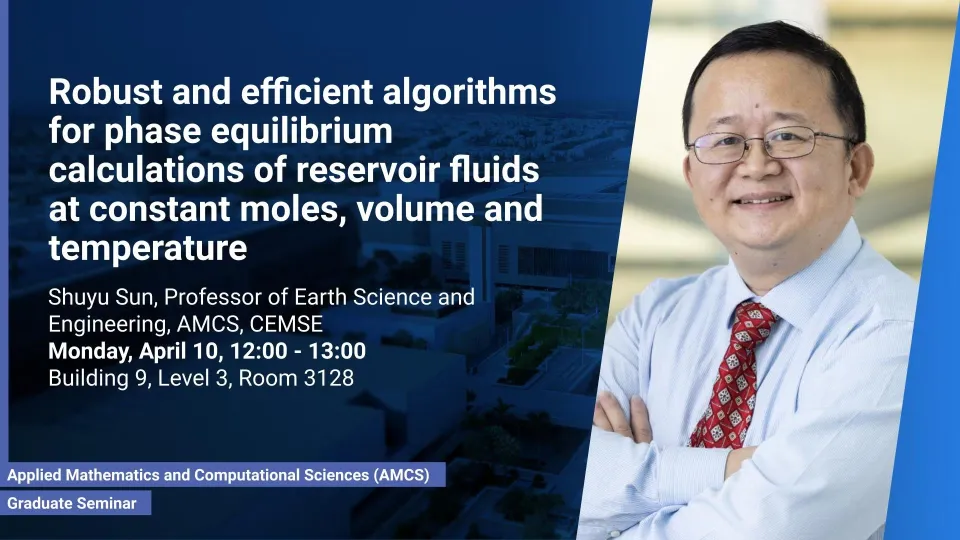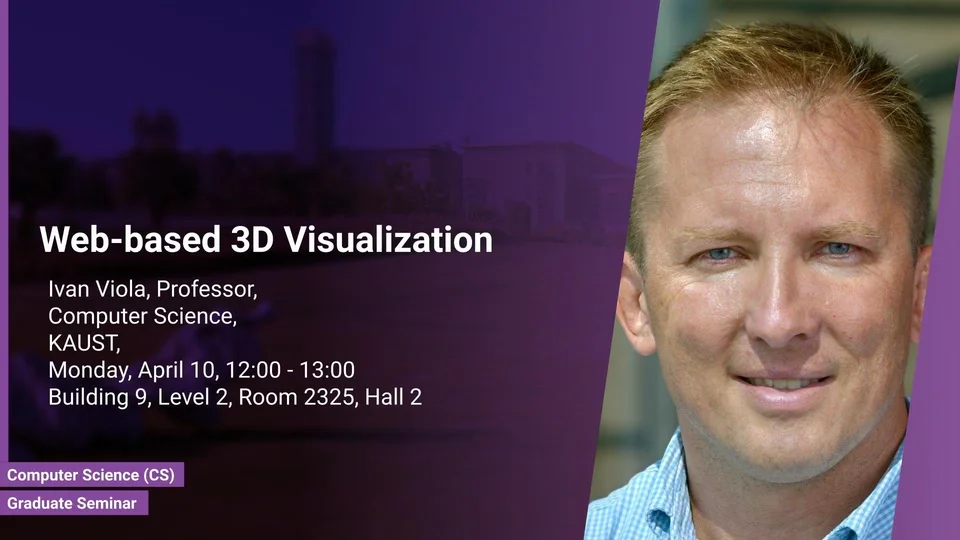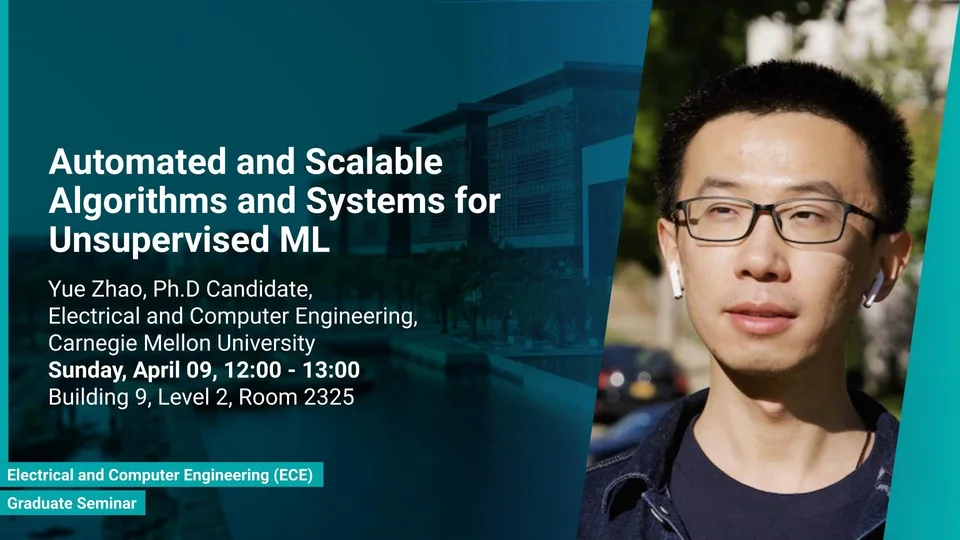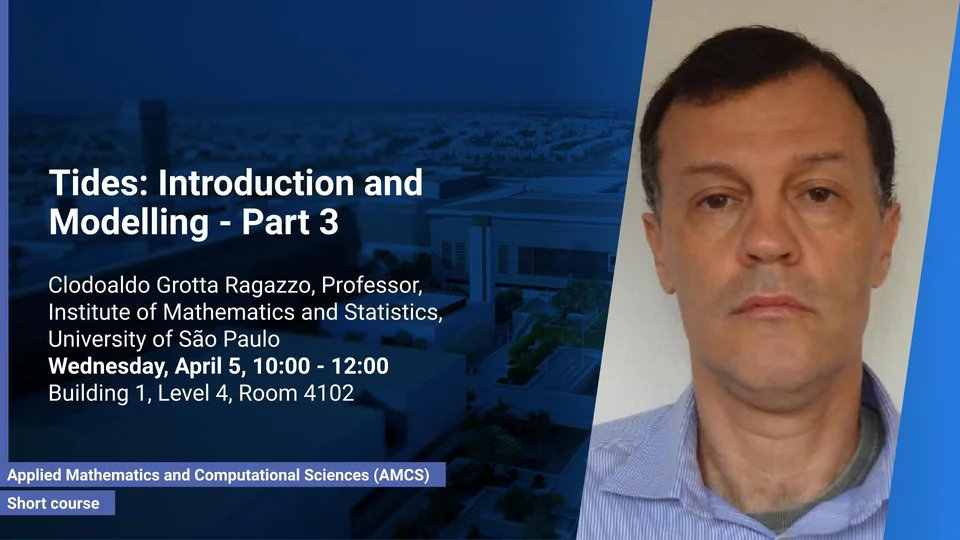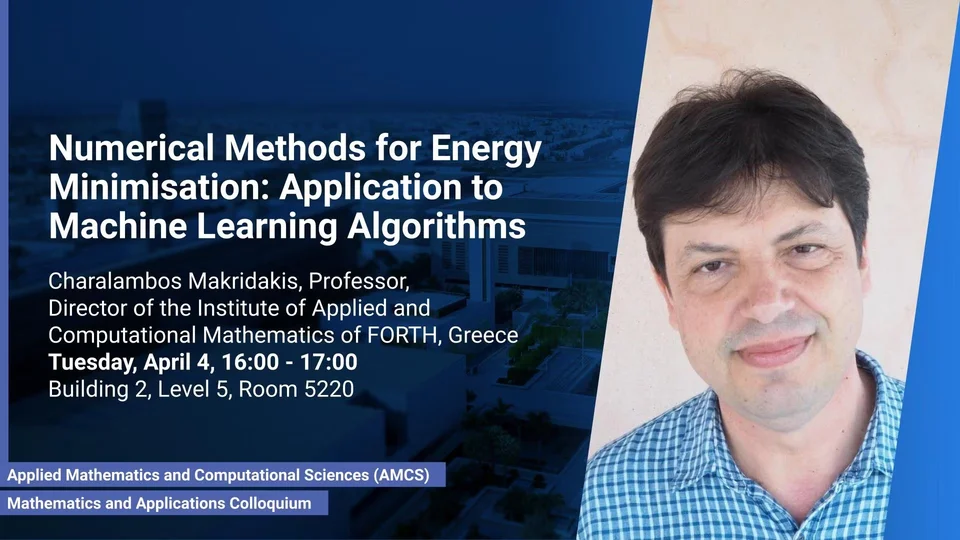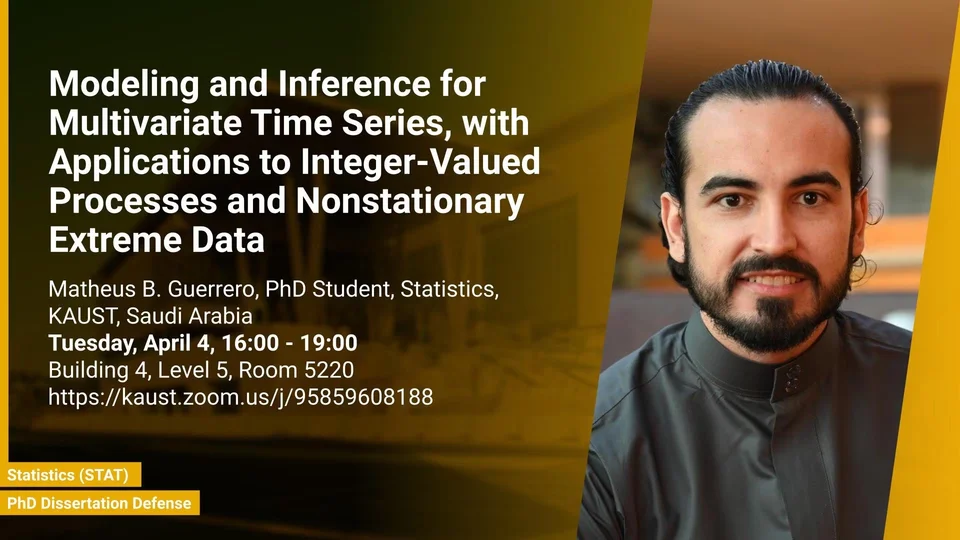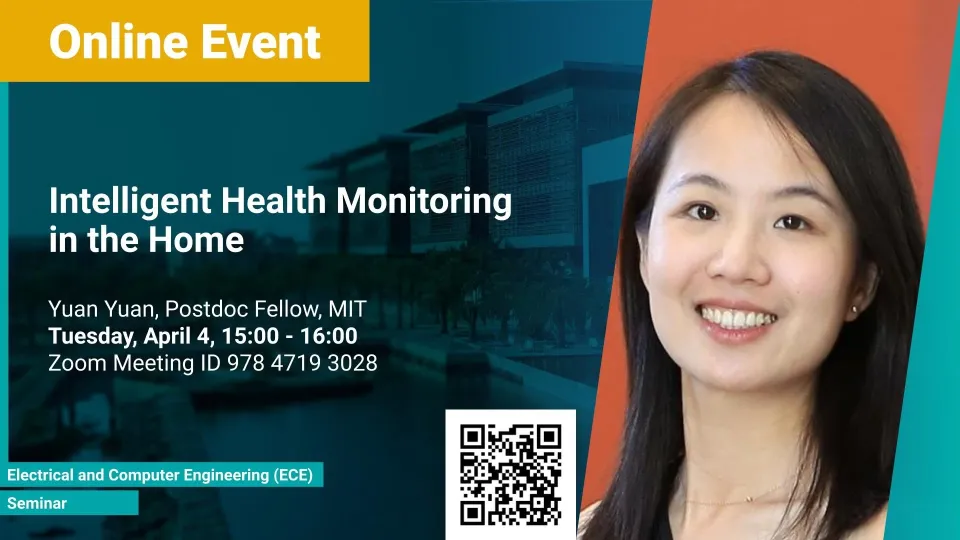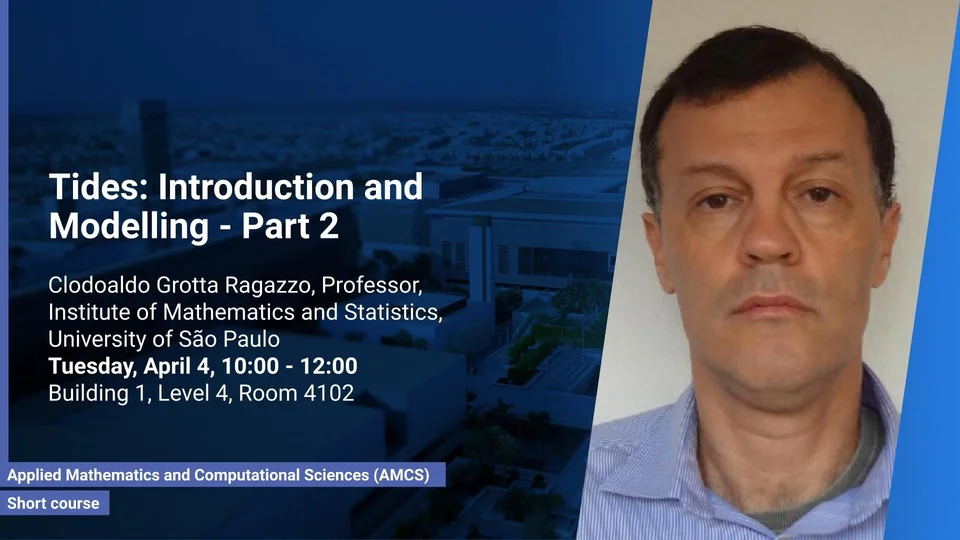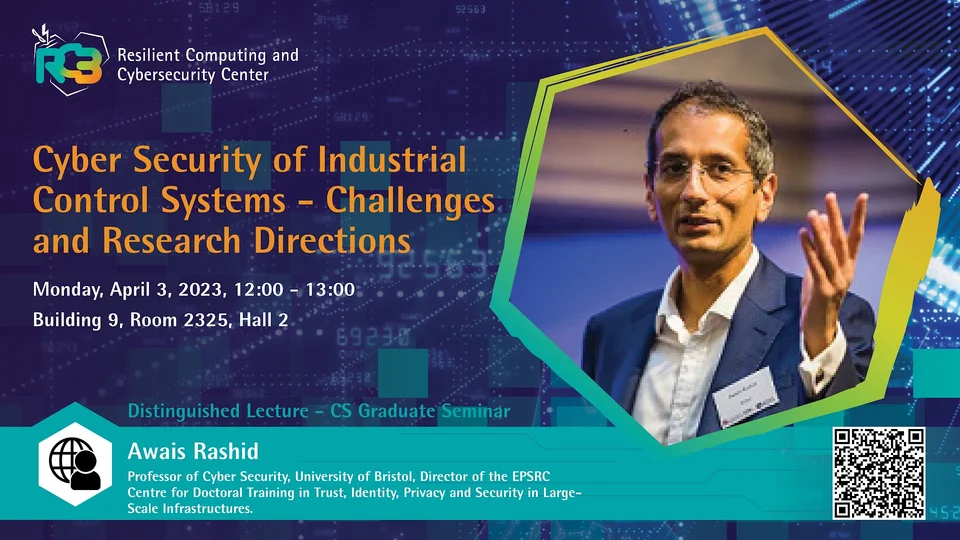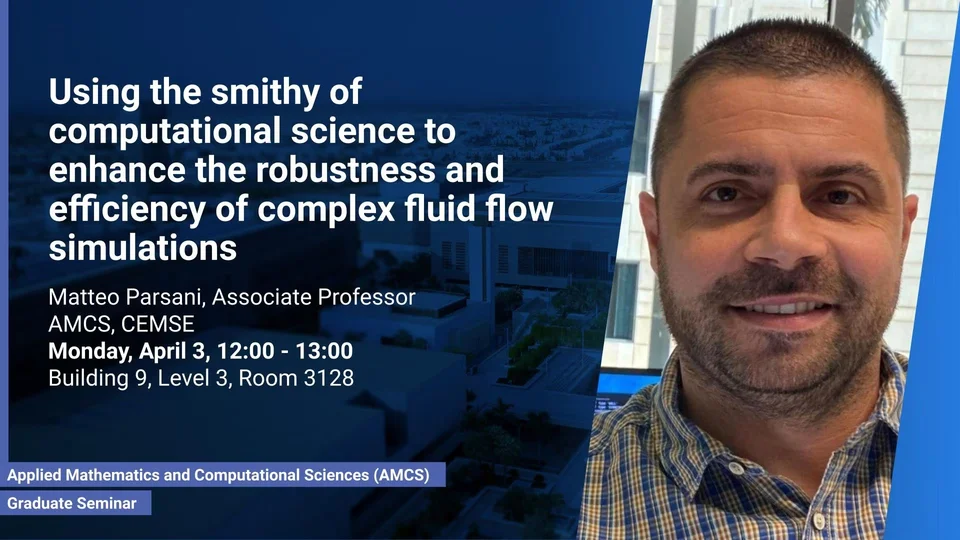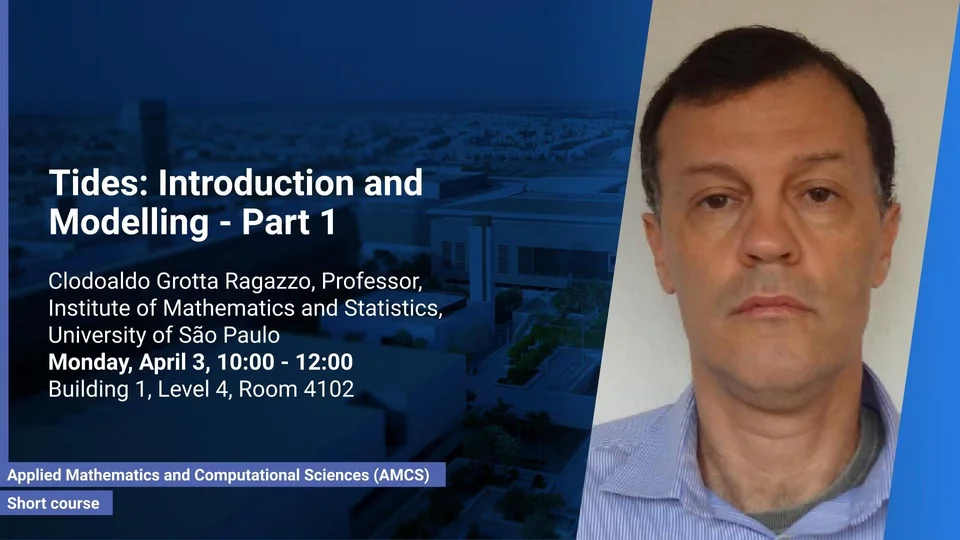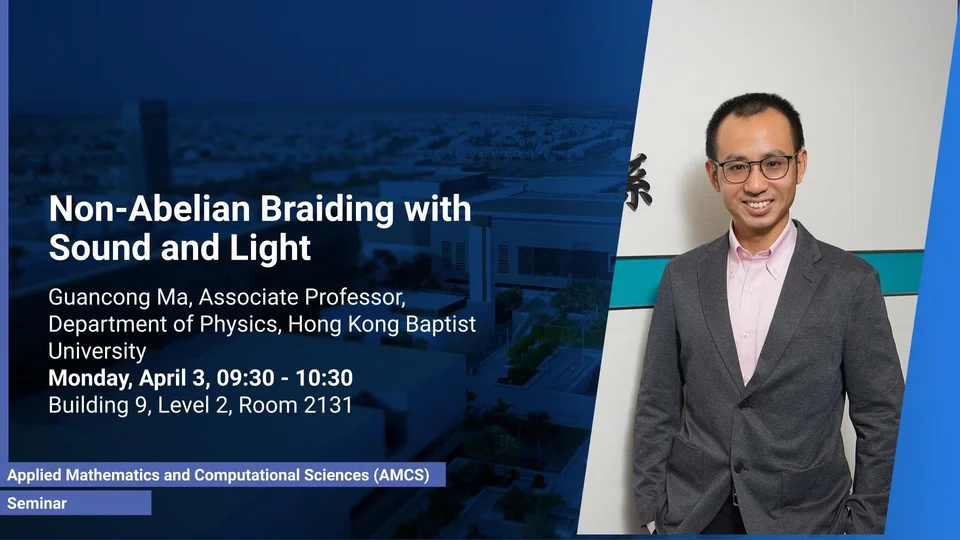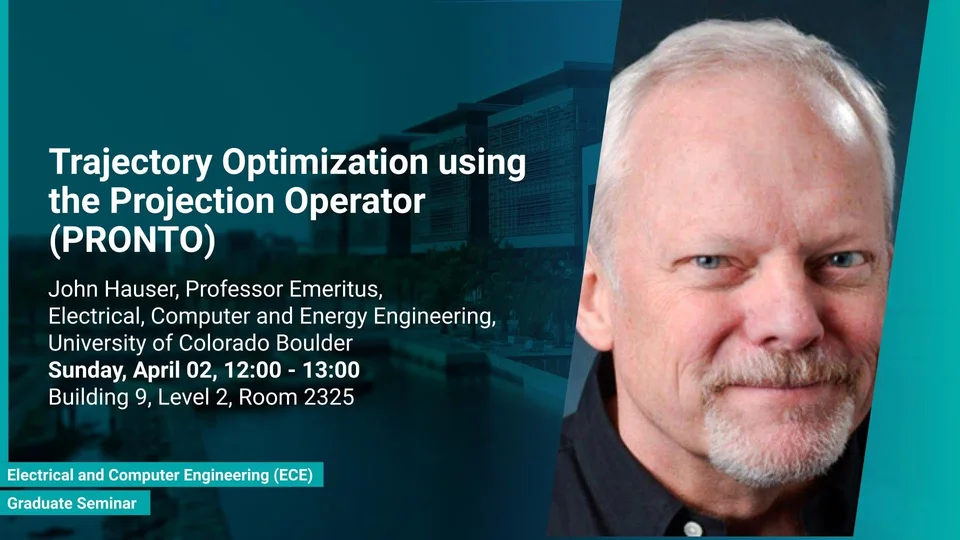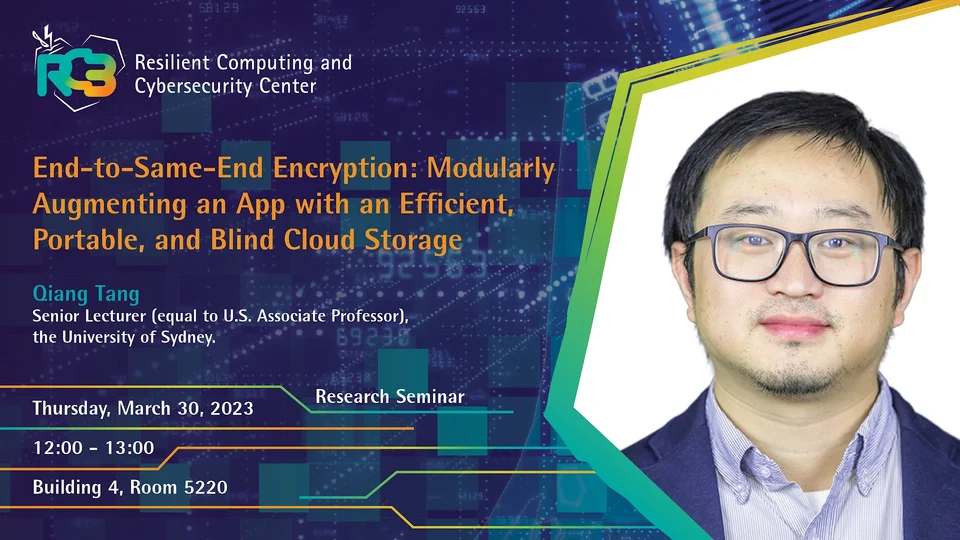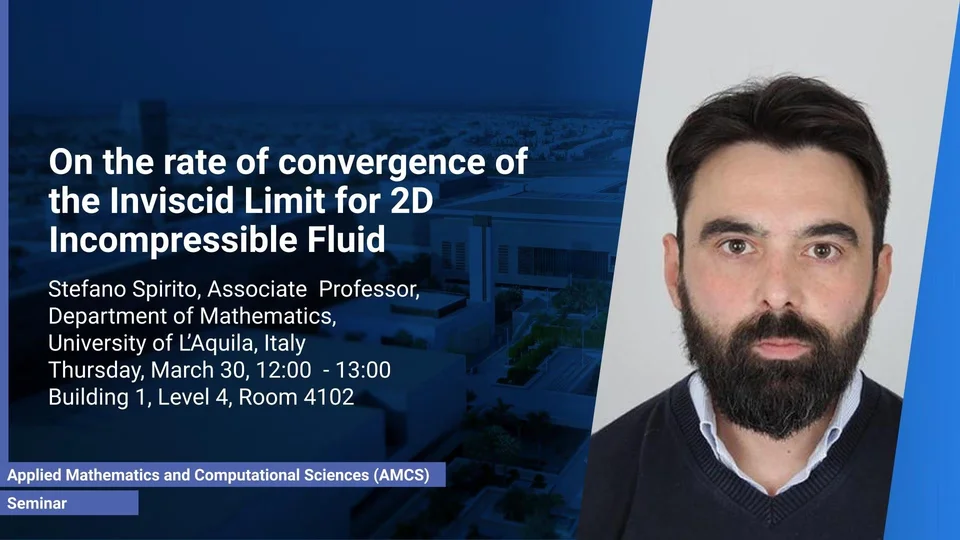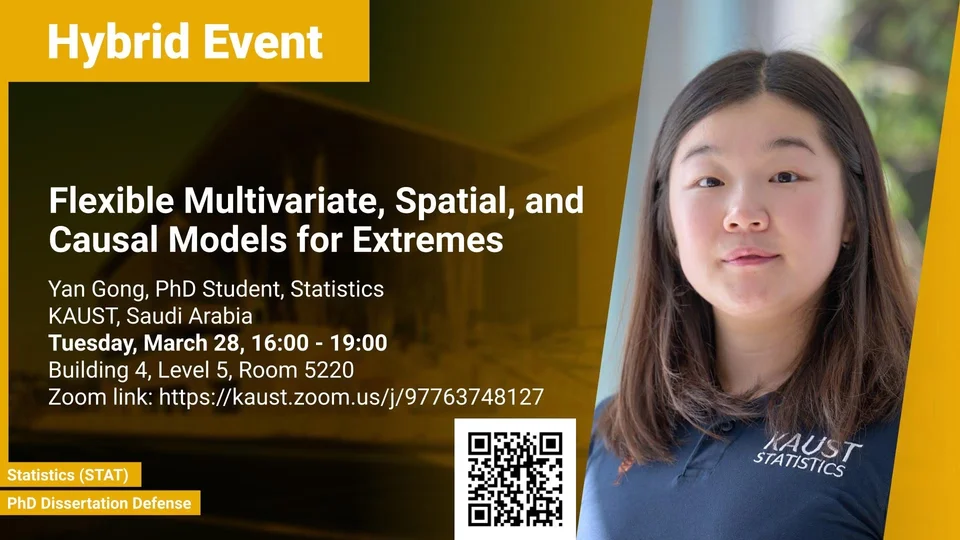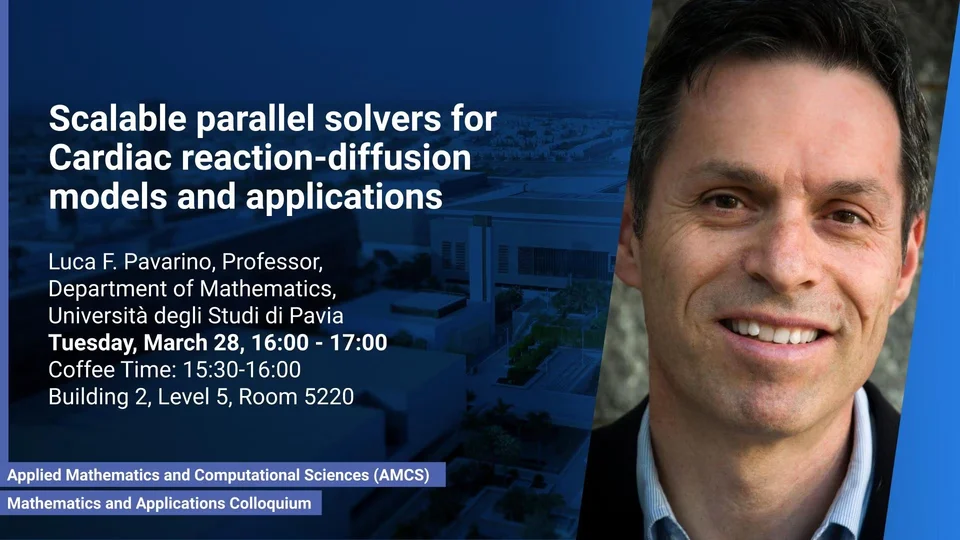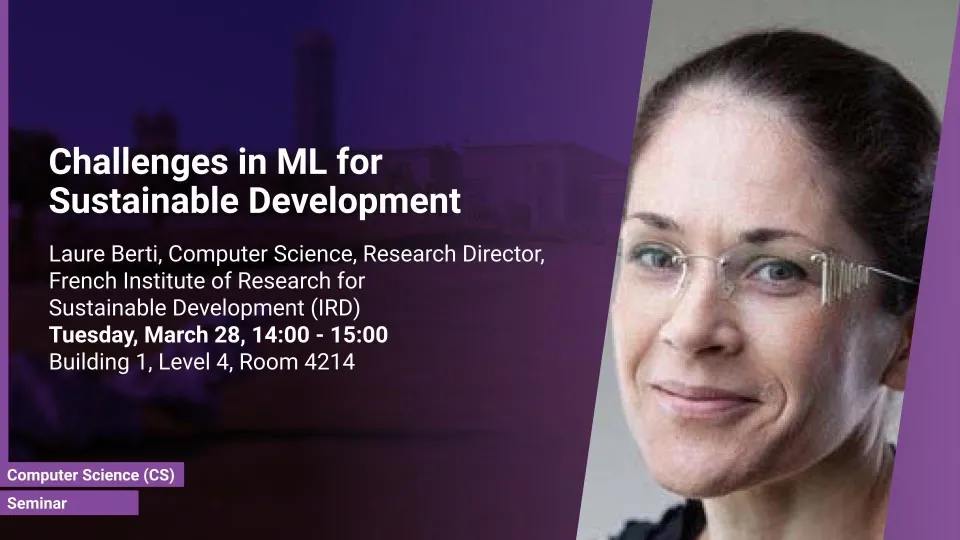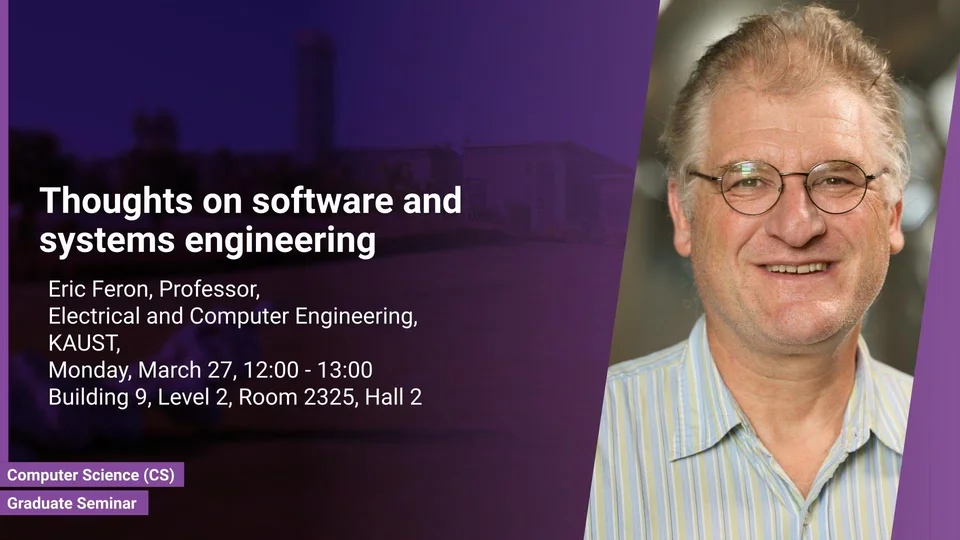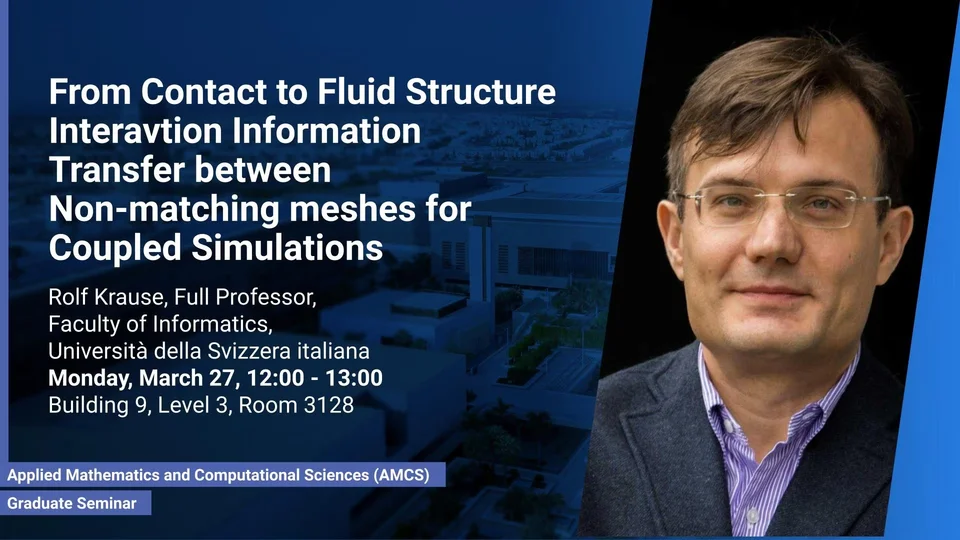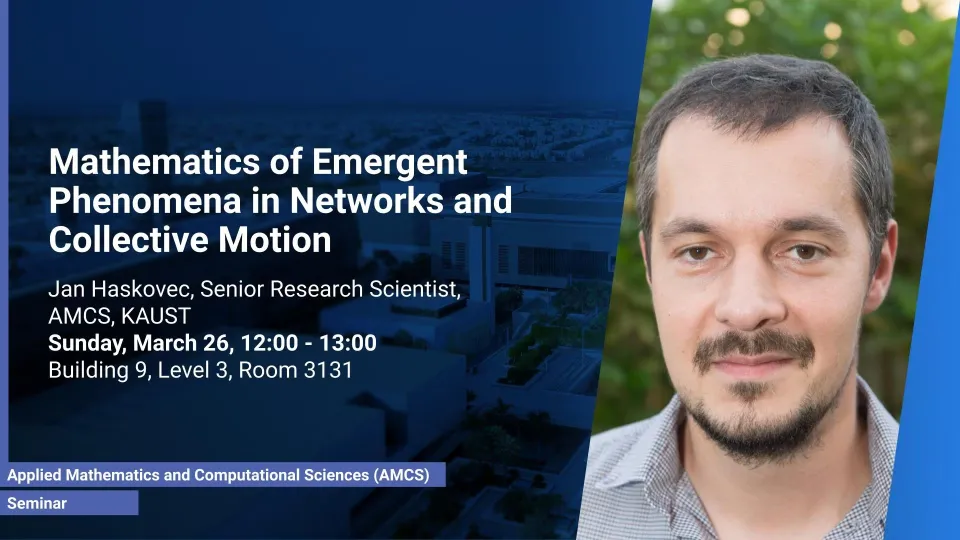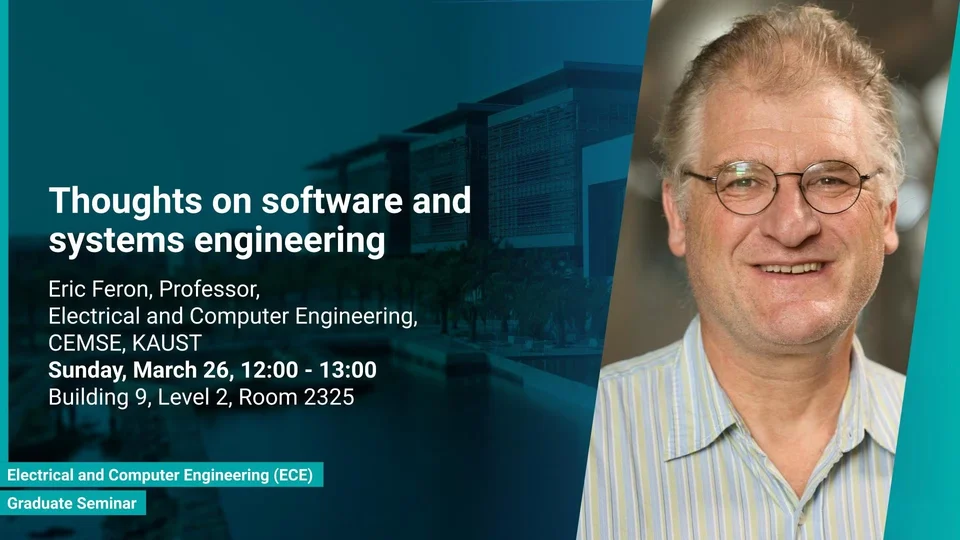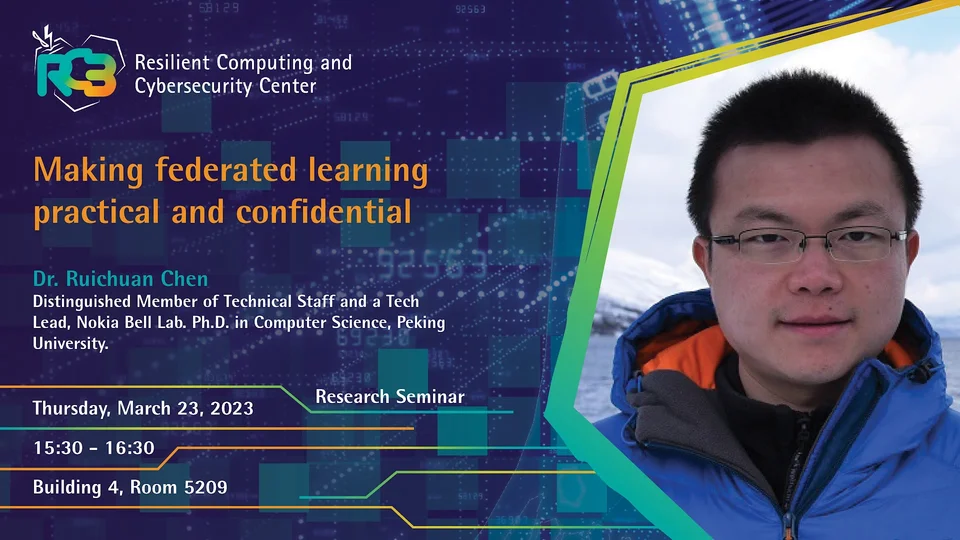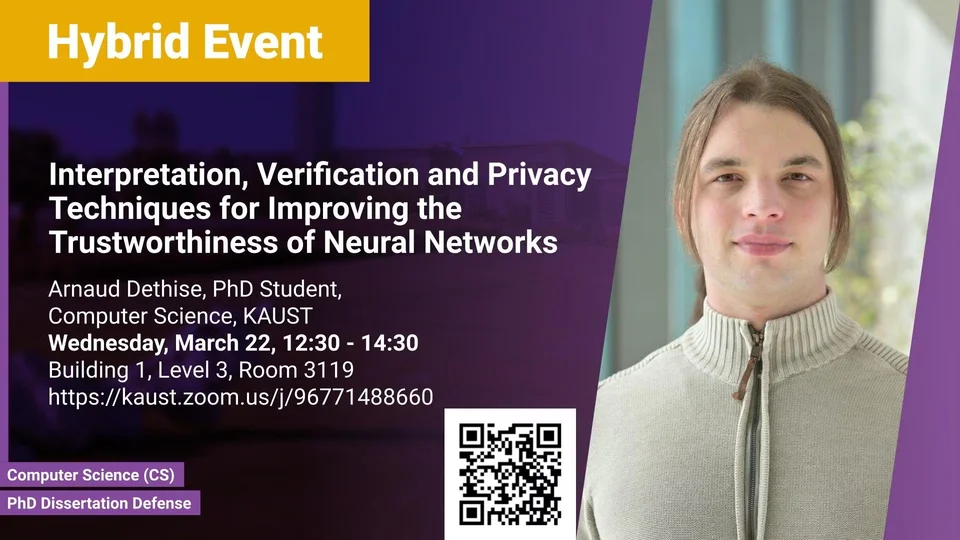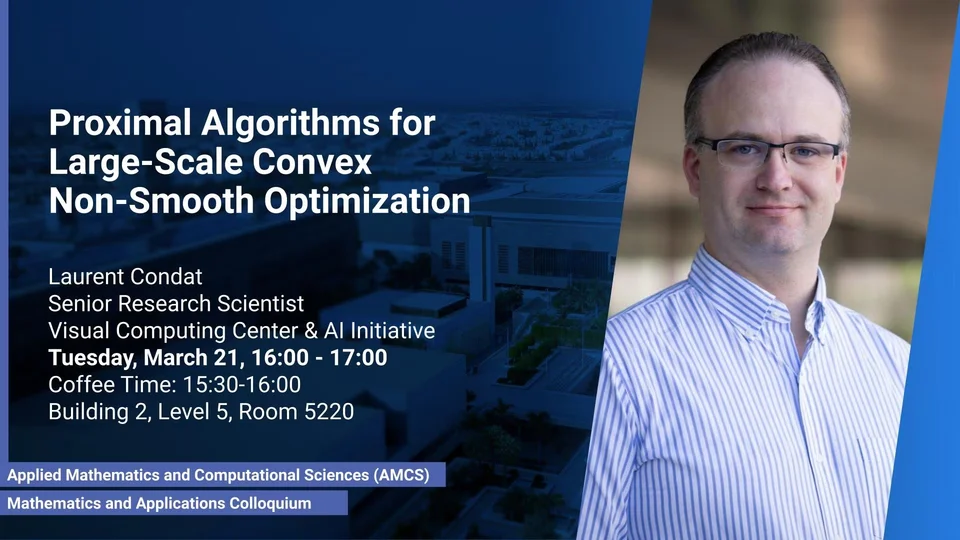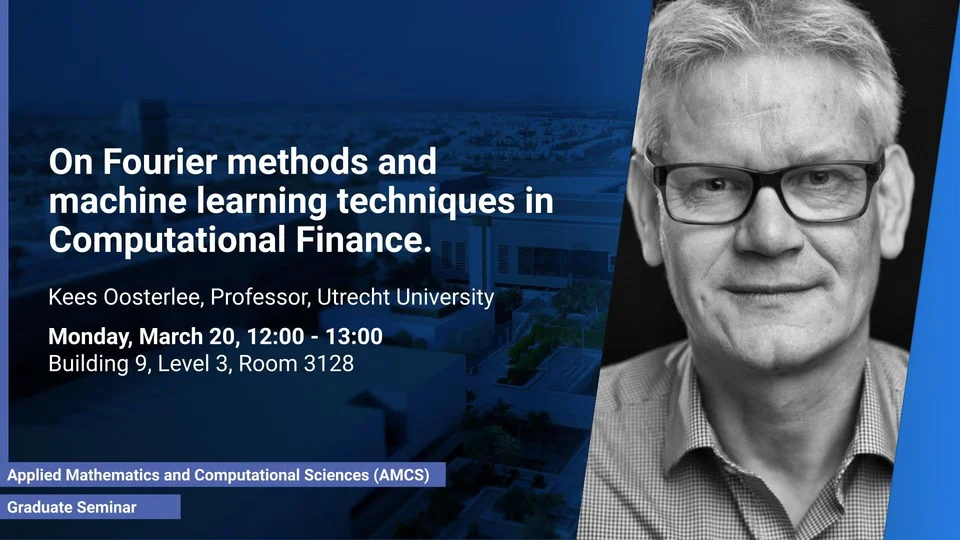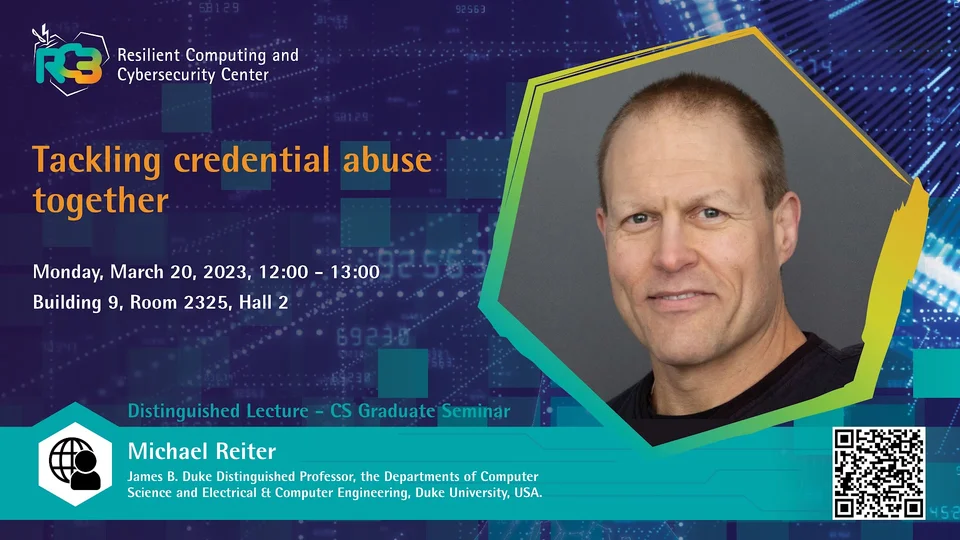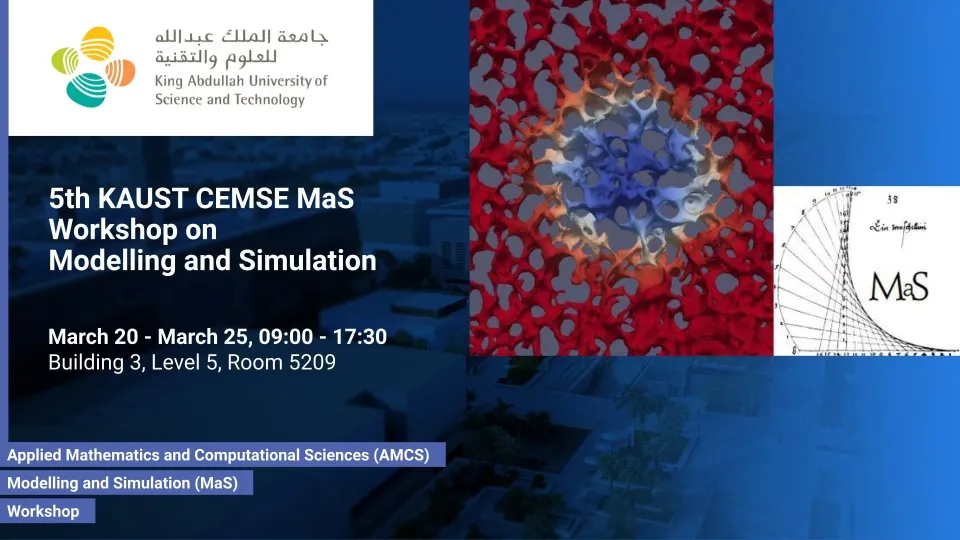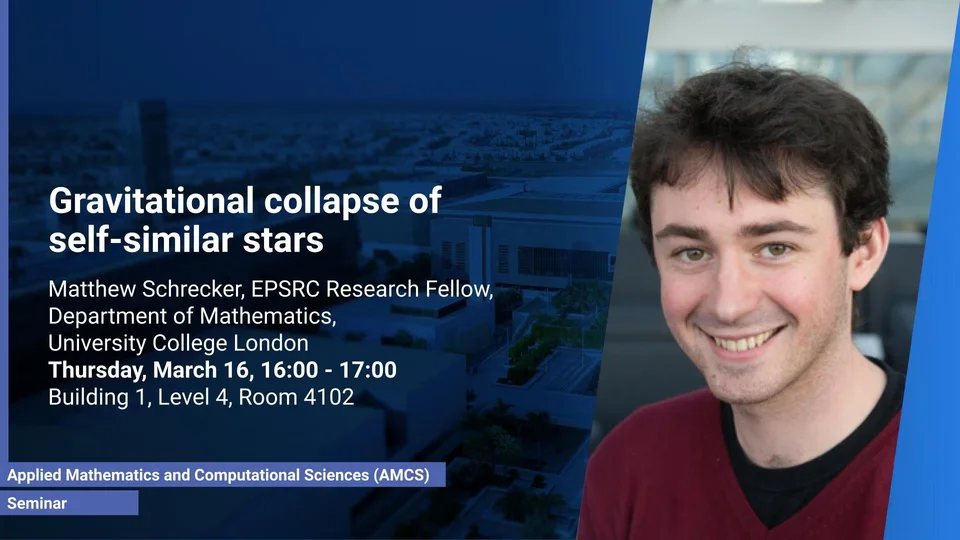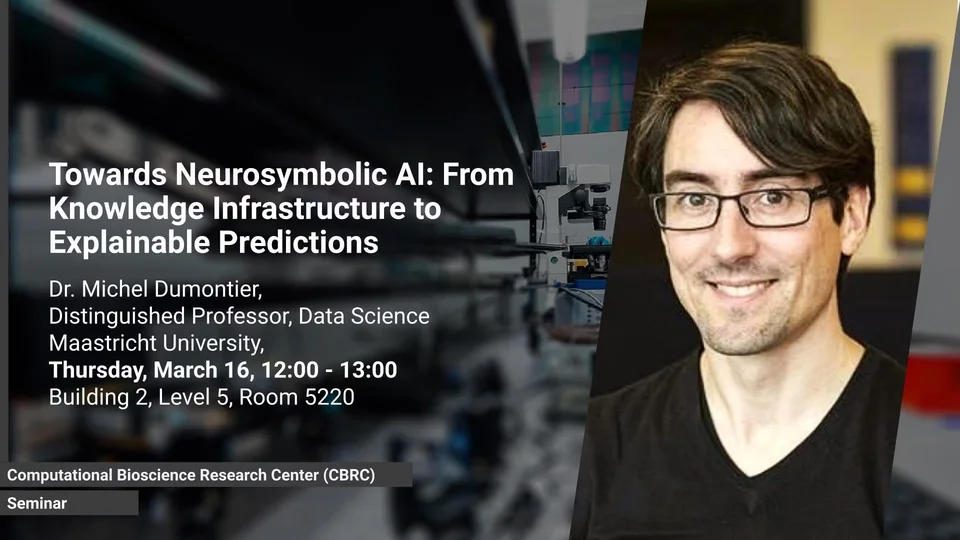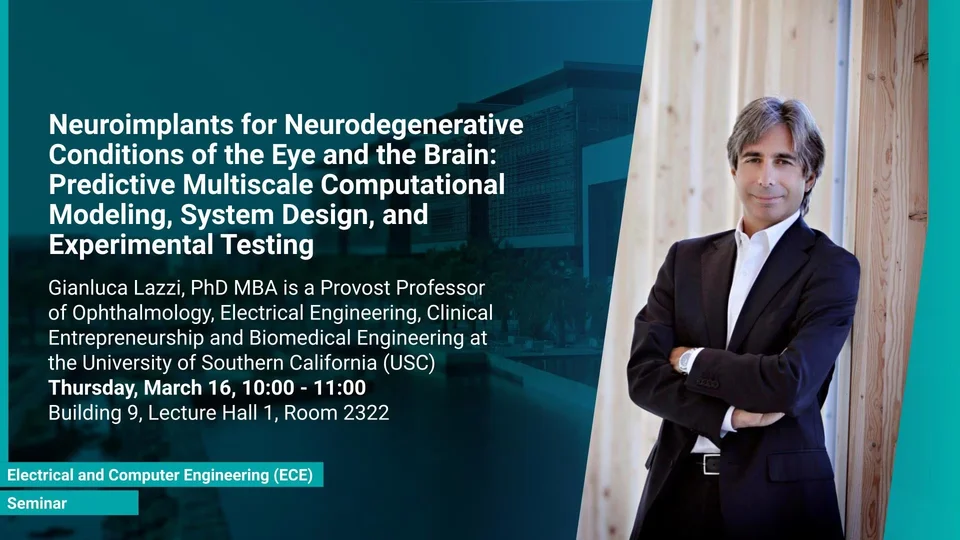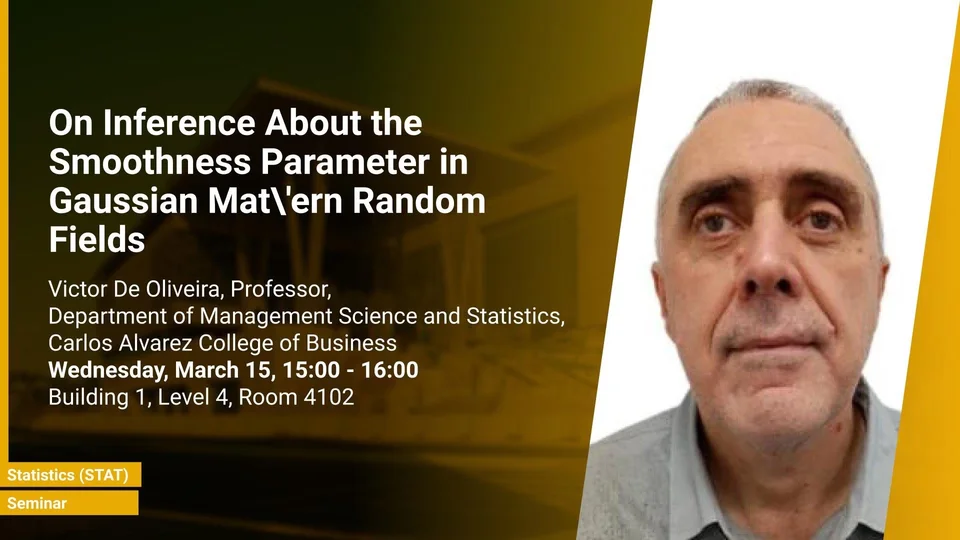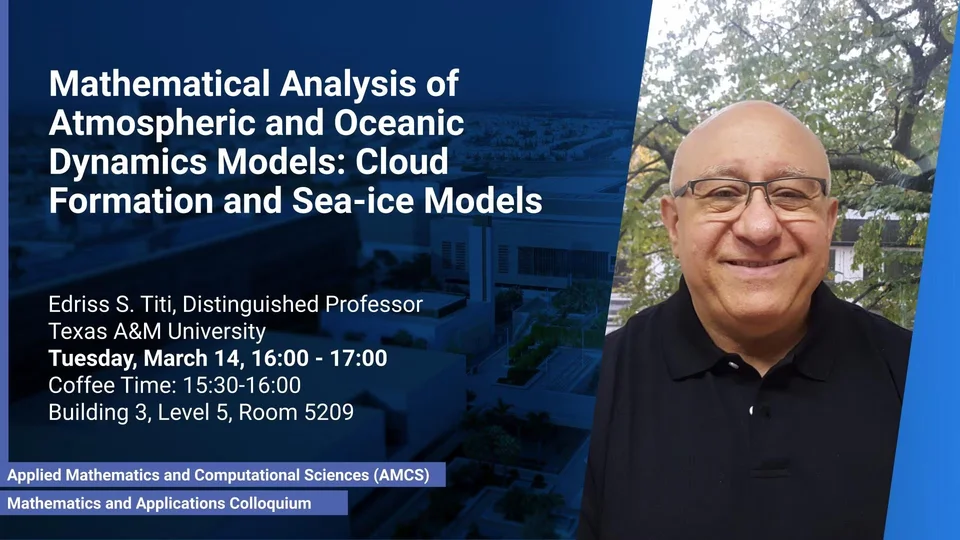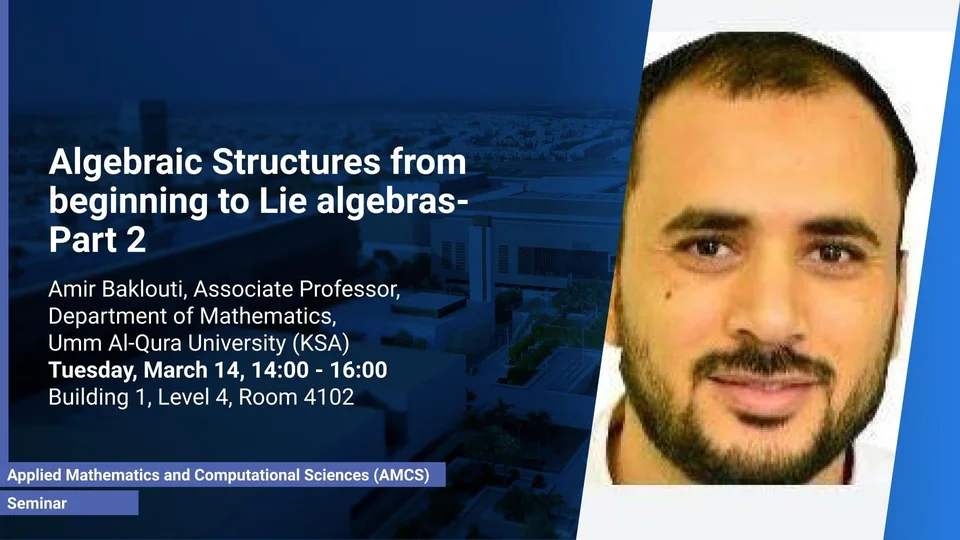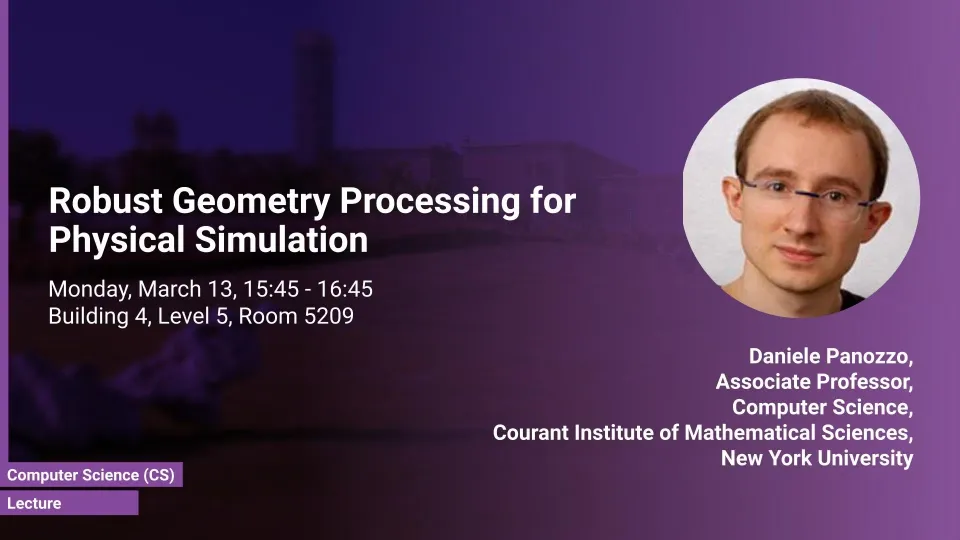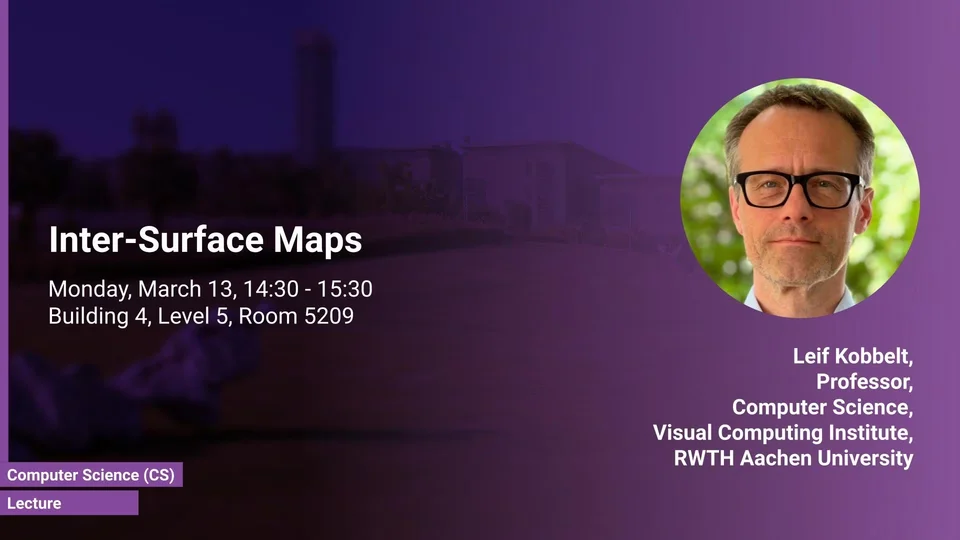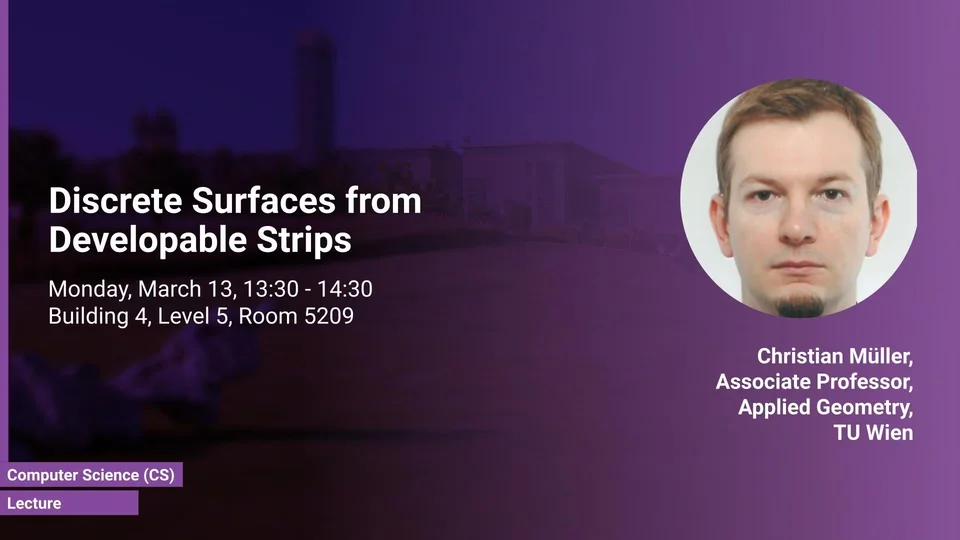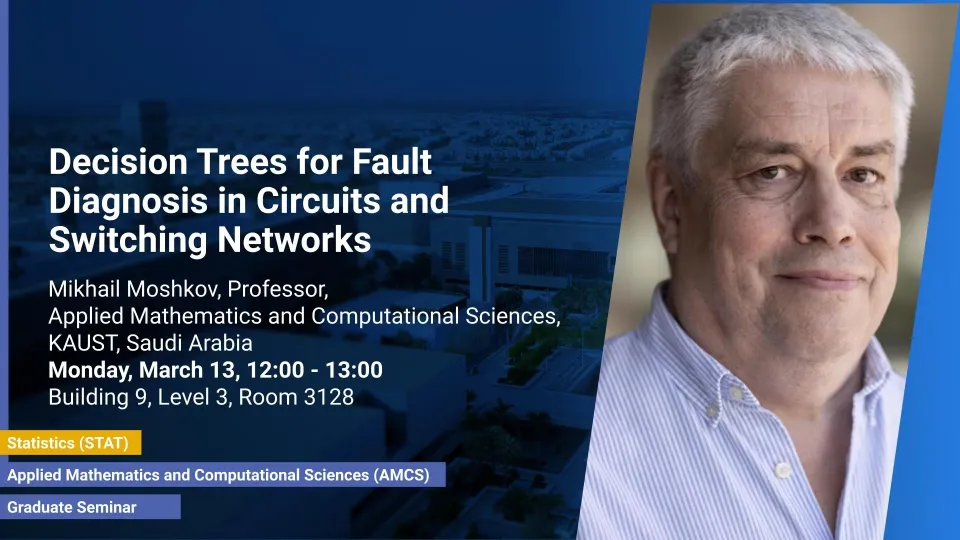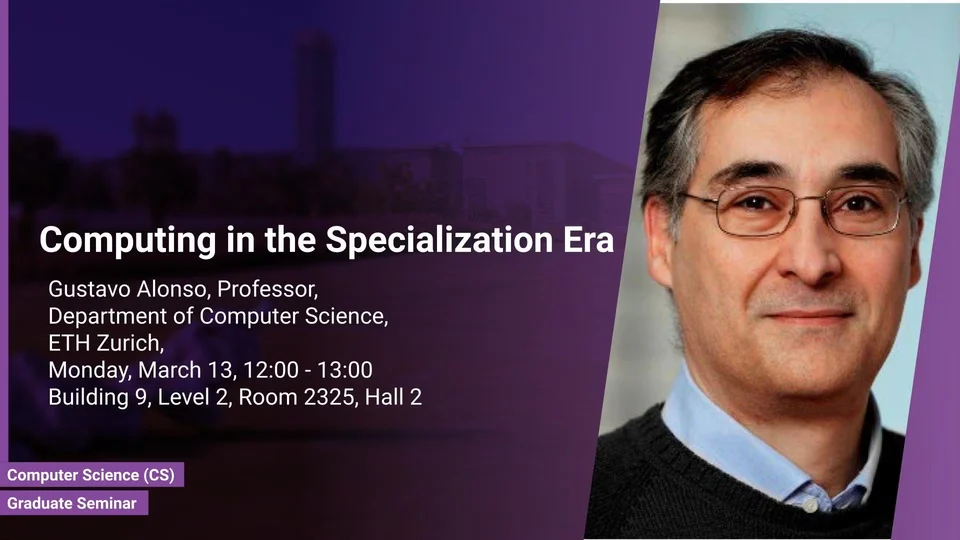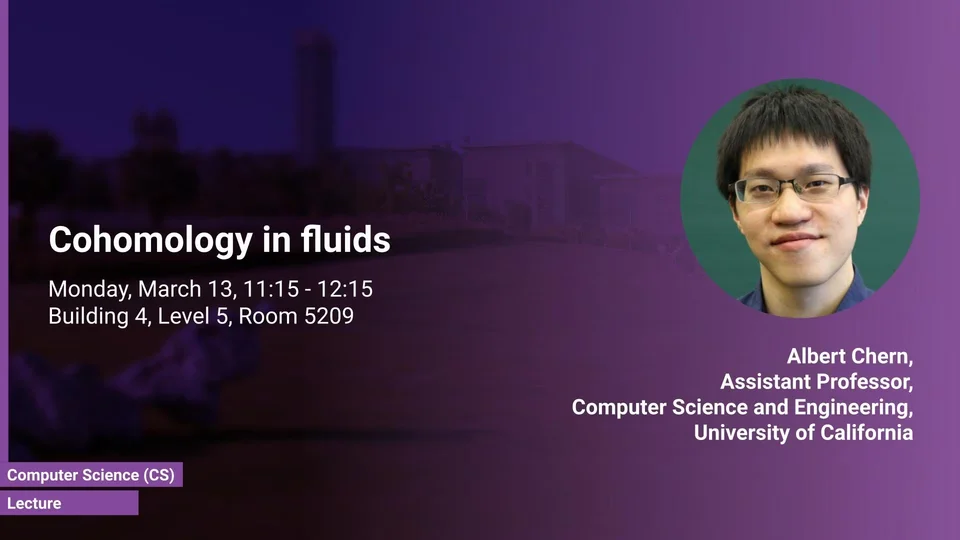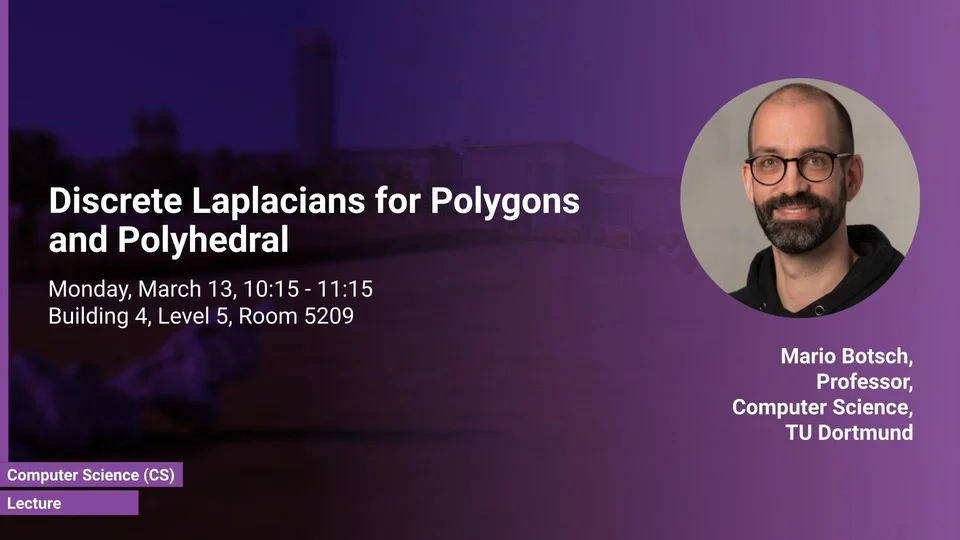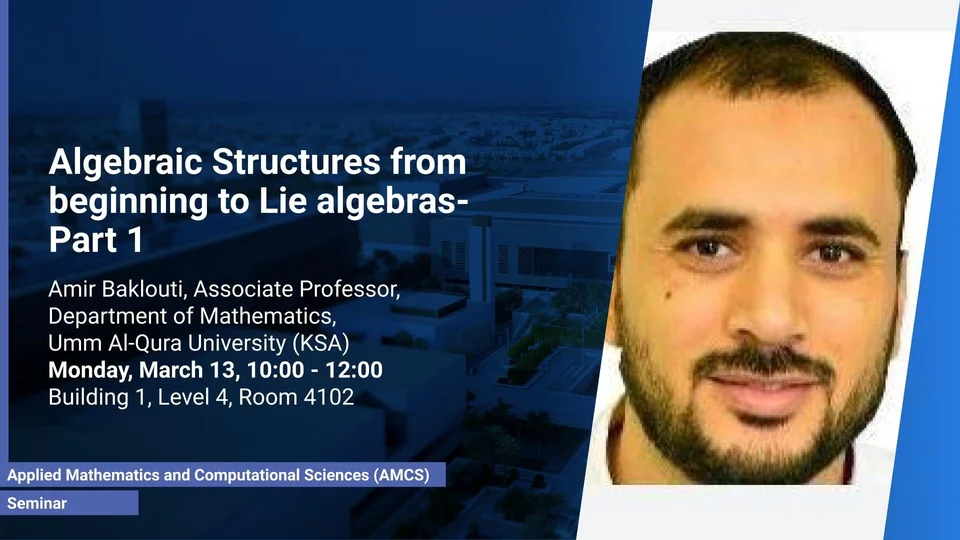Events
Apr 16 - Apr 22, 2023
Apr 9 - Apr 15, 2023
High-order non-conforming finite elements for the Stokes equation
Stefan Sauter, Professor, Institute of Mathematics, University of Zurich
B2 L5 R5220
Robust and efficient algorithms for phase equilibrium calculations of reservoir fluids at constant moles, volume and temperature
Shuyu Sun, Professor of Earth Science and Engineering، KAUST
B9 L3 R3128
Automated and Scalable Algorithms and Systems for Unsupervised ML
Yue Zhao, Computer Engineering, Carnegie Mellon University
B9 L2 H2
Apr 2 - Apr 8, 2023
Numerical Methods for Energy Minimisation: Application to Machine Learning Algorithms
Prof. Charalambos Makridakis, Director of the Institute of Applied and Computational Mathematics of FORTH, Greece
B2 L5 R5220
Intelligent Health Monitoring in the Home
Yuan Yuan, Postdoc Fellow, MIT
KAUST
Non-Abelian Braiding with Sound and Light
Guancong Ma, Associate Professor, Department of Physics, Hong Kong Baptist University
B9 L2 R2131
Trajectory Optimization using the Projection Operator (PRONTO)
John Hauser, Electrical Computer and Energy Engineering, University of Colorado Boulder
B9 L2 H2
Mar 26 - Apr 1, 2023
On the rate of convergence of the Inviscid Limit for 2D Incompressible Fluid
Associate Professor Stefano Spirito, Department of Mathematics, University of LAquila, Italy
B1 L4 R4102
Scalable parallel solvers for cardiac reaction-diffusion models and applications
Luca F. Pavarino, Professor, Department of Mathematics, Università degli Studi di Pavia
B2 L5 R5220
From Contact to Fluid Structure Interavtion Information Transfer between Non-matching meshes for Coupled Simulations
Prof. Rolf Krause, Università della Svizzera italiana
B9 L3 R3128
Mar 19 - Mar 25, 2023
Making federated learning practical and confidential
Dr. Ruichuan Chen, Distinguished Member of Technical Staff and a Tech Lead, Nokia Bell Labs
B4 L5 R5209
On Fourier methods and machine learning techniques in Computational Finance.
Prof. Kees Oosterlee, Utrecht University
B9 L3 R3128
5th KAUST CEMSE MaS Workshop on Modelling and Simulation
Speakers from KAUST, Melbourne, Utrecht, Karlsruhe, Erlangen, Brisbane, Langensteinbach, Lugano, Frankfurt, Italy
B3 L5 R5209
Monolithic Quantum Devices on SOI for Silicon Photonics
Prof. Kei May Lau, Electronic Engineering, Chinese University, Hong Kong
B9 L2 H2
Mar 12 - Mar 18, 2023
Neuroimplants for Neurodegenerative Conditions of the Eye and the Brain: Predictive Multiscale Computational Modeling, System Design, and Experimental Testing
Gianluca Lazzi, PhD MBA is a Provost Professor of Ophthalmology, Electrical Engineering, Clinical Entrepreneurship and Biomedical Engineering at the University of Southern California (USC)
B9 H1 R2322
On Inference About the Smoothness Parameter in Gaussian Matern Random Fields
Prof. Victor DeOliveira, Professor in Department of Management Science and Statistics in the Carlos Alvarez College of Business
B1 L4 R4102
Algebraic Structures from beginning to Lie algebras-Part 2
Associate Professor Amir Baklouti, Department of Mathematics, Umm Al-Qura University (KSA
B1 L4 R4102
Algebraic Structures from beginning to Lie algebras- Part 1
Associate Professor Amir Baklouti, Department of Mathematics, Umm Al-Qura University (KSA
B1 L4 R4102
